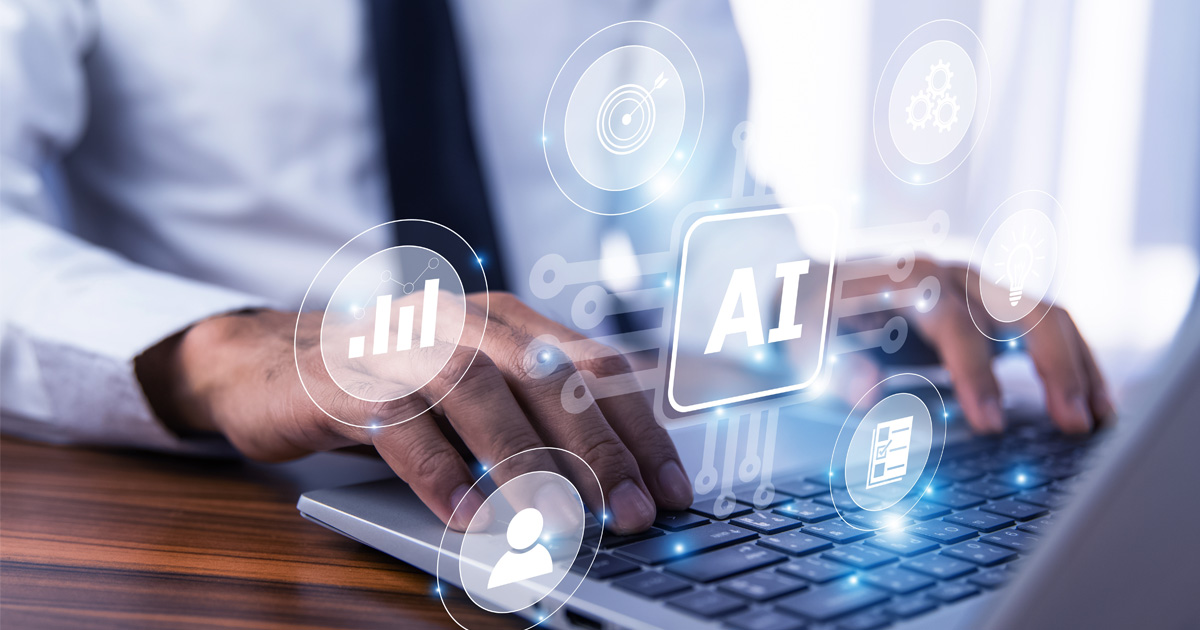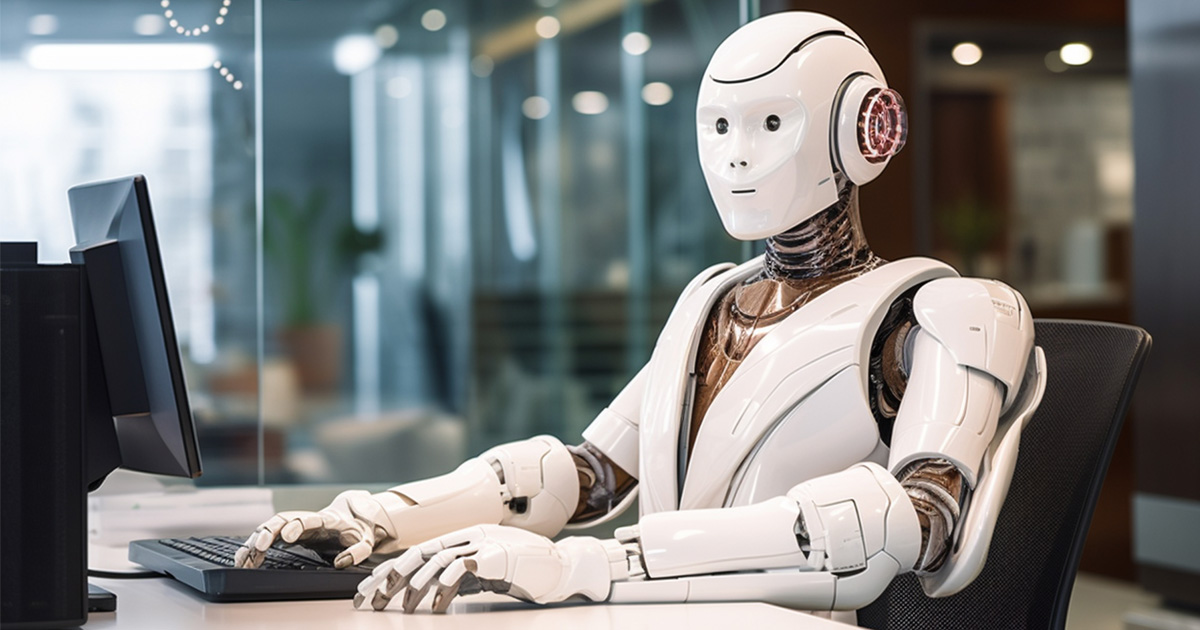Here’s a question we hear constantly: “Do you think AI will replace accountants?”
It’s showing up in our inbox. In consultation calls. In conversations with nonprofit leaders and business owners who are trying to figure out their next move. They’re reading about AI accountant tools that promise to automate bookkeeping, generate reports instantly, and flag financial anomalies before they become problems. The question underneath is always the same: should they cut their accounting staff and switch to software?
We get it. The headlines make it sound like accounting artificial intelligence is about to put us all out of business. And honestly? Some of what AI can do is genuinely impressive.
But here’s what those headlines miss: accounting isn’t just data entry and number crunching. It’s judgment calls about tax strategy. It’s spotting red flags that don’t show up in your reports. It’s understanding that your budget crisis isn’t really about money – it’s about operational challenges or strategic misalignment.
The pattern? Technology becomes an incredibly powerful tool. Accountants who refuse to adapt get left behind. But the ones who combine technology with human expertise? They become more valuable than ever.
Let’s break down what’s actually happening with AI accountants, what they can and can’t do, and why the future isn’t about replacement – it’s about collaboration.

WHAT IS AN AI ACCOUNTANT?
An AI accountant isn’t a robot sitting at a desk. It’s artificial intelligence technology applied to accounting tasks. Software that can learn patterns, make predictions, and automate complex processes that used to require human judgment.
Traditional accounting automation follows rules you program: “If invoice matches purchase order, approve payment.” Simple if-then logic.
AI in accounting works differently. It learns from thousands of transactions to recognize patterns. It can predict cash flow based on historical trends. It spots anomalies by understanding what “normal” looks like for your business. It gets smarter the more data it processes.
Current AI accounting tools handle tasks like:
- Automatically categorizing transactions by learning your spending patterns
- Reconciling accounts by matching transactions across multiple systems
- Detecting duplicate payments or unusual expenses
- Generating financial reports with predictive analytics
- Flagging potential compliance issues before they become problems
- Forecasting revenue and expenses based on historical data
The difference between your QuickBooks Online automation and true accounting artificial intelligence? QuickBooks follows the rules you set. AI accounting software learns what rules make sense based on your actual business behavior.
That distinction matters when we talk about what AI can replace.
THE RISE OF ARTIFICIAL INTELLIGENCE IN ACCOUNTING
Small nonprofits with two-person finance teams can now implement AI tools that spot duplicate vendor payments within seconds. Construction companies could use AI-powered forecasting to predict cash flow crunches three months out. Professional service firms could cut their month-end close from 10 days to 4 days using AI-driven reconciliation tools.
The numbers back up what we’re seeing. Research shows that over 60% of accounting firms now use some form of AI technology, and that percentage is climbing fast. Small and mid-sized businesses are particularly interested because they see potential cost savings and efficiency gains.
Why the sudden rush to AI accountant tools?
- Speed matters. What takes a human bookkeeper three hours – categorizing hundreds of transactions – takes AI three minutes.
- Accuracy improves. Humans get tired and make data entry errors. AI doesn’t get distracted during its fifth hour of invoice processing.
- Costs add up. A full-time bookkeeper costs $45,000-$60,000 annually. AI accounting software might cost $50-$200 per month.
But here’s where businesses make a critical mistake: they assume these benefits mean they can eliminate human accountants entirely. Speed, accuracy, and cost savings are real. But they don’t tell the whole story.
AI ACCOUNTANT VS HUMAN ACCOUNTANT: WHAT EACH DOES BEST
Let’s be specific about what AI does brilliantly and where humans remain essential.
What AI Does Best
- AI can process thousands of transactions in minutes, learning your categorization patterns and applying them consistently. It never fat-fingers a number or puts office supplies in the meals category because it’s distracted.
- Bank reconciliation happens automatically – matching transactions across multiple accounts, flagging discrepancies, and identifying missing entries. What used to take hours now takes minutes.
- Invoice processing runs without human intervention. AI reads invoices, extracts data, matches them to purchase orders, and routes them for approval. It catches duplicate invoices that humans miss.
- Standard financial reports generate automatically with real-time data updates. Profit and loss statements, balance sheets, cash flow statements – all available instantly.
- AI spots unusual transactions by comparing them against historical patterns. A $5,000 office supply purchase when you usually spend $200? Flagged immediately.
- Predictive analytics forecast cash flow, predict seasonal revenue patterns, and model different financial scenarios based on historical data and market trends.
What Humans Excel At
- Strategic tax planning requires understanding your specific goals, risk tolerance, and long-term plans. AI can’t call the IRS to negotiate your payment plan or advise on the tax implications of expanding into a new state.
- Complex judgment calls define accounting. Should you capitalize or expense that equipment purchase? How do you account for that unusual partnership arrangement? AI doesn’t handle gray areas well – and accounting is full of gray areas.
- When new regulations come out, humans read between the lines, attend training, and apply professional judgment. AI waits for someone to program the new rules.
- Your accountant knows your board president is risk-averse, your CFO is leaving in six months, and your largest funder just changed their reporting requirements. Context matters.
- Accountants have professional licenses and ethical obligations. If something goes wrong, there’s a CPA who’s accountable. Who’s responsible when AI makes an error?
- “Should we hire another staff member or outsource this function?” That decision requires understanding your culture, growth trajectory, and operational capacity—not just running numbers.
Here’s a simple breakdown:
- Tasks AI handles excellently: Transaction categorization, bank reconciliation, standard report generation, anomaly detection, invoice processing, predictive forecasting
- Tasks humans handle better: Tax strategy, regulatory interpretation, complex judgment calls, client relationships, ethics and accountability, customized business advice
- Best approach: AI handles repetitive data-heavy tasks with human oversight. Humans handle everything requiring judgment, context, and relationship skills.
CAN AI REPLACE YOUR ACCOUNTANT COMPLETELY?
No. Let us be clear about that.
Can AI replace certain accounting tasks? Absolutely. Should you be using AI tools to make your accounting more efficient? Yes, if you want to stay competitive.
But can AI replace your accountant completely? Not yet. Probably not ever, at least not in the way people imagine.
Here’s why:
AI Doesn’t Understand Context
When we see a nonprofit client’s revenue drop 30% in Q2, we don’t just report the number. We know that’s when their major annual fundraiser got postponed because the executive director had emergency surgery. We understand the context, we know what questions to ask, and we help plan the recovery strategy.
AI sees a 30% revenue drop and flags it as anomalous. That’s helpful, but it’s not the same as understanding what happened and what to do about it.
Regulations Require Professional Judgment
Accounting rules leave room for interpretation. When do you recognize revenue? How do you classify that weird expense? What documentation do you need to satisfy an audit?
These questions don’t have neat, programmable answers. They require professional judgment based on years of experience, industry knowledge, and understanding of regulatory intent.
Someone Needs to Be Accountable
When you sign your tax return or submit your audit, someone with a professional license is putting their name on those documents. If something goes wrong, there’s a licensed CPA who’s responsible.
AI can’t be held accountable. It can’t testify in court. It can’t defend its decisions to regulators. It can’t carry malpractice insurance.
Relationships Still Matter
Your accountant should know your business well enough to spot problems before they show up in the numbers. They should understand your goals, your challenges, and your risk tolerance.
When you’re deciding whether to expand into a new location, you don’t just need financial projections. You need someone who knows your operational capacity, your management team’s bandwidth, and your board’s appetite for risk.
AI can run the numbers. It can’t have that conversation.
The Realistic Outlook
Think of an AI accountant as an incredibly capable assistant, not an autonomous professional. It’s a tool that makes human accountants faster, more accurate, and more efficient. It’s not a replacement for human expertise, judgment, and relationship management.
The businesses that thrive aren’t the ones replacing their accountants with AI. They’re the ones whose accountants are using AI to deliver better, faster service while focusing their human expertise on the things that actually require human expertise.

THE HYBRID FUTURE: AI + HUMAN COLLABORATION
Here’s what the future of accounting actually looks like: accountants working alongside AI tools, not competing with them.
We call this the “co-pilot model.” AI handles the heavy lifting on repetitive tasks, flags issues that need attention, and generates insights from your data. Human accountants interpret those insights, apply professional judgment, and deliver strategic advice.
This model is already transforming how we work with clients at Greenwood Ohlund.
How We’re Using AI
We’ve integrated AI-powered tools into our accounting services practice, and the results are impressive:
- Month-end close is faster. Tasks that used to take our team days now happen automatically. We spend that saved time reviewing the results, identifying trends, and preparing meaningful analysis for clients.
- We catch errors earlier. AI anomaly detection flags unusual transactions immediately. Instead of finding problems during our monthly review, we’re addressing them within days of occurrence.
- Forecasting is more accurate. AI analyzes years of historical data and identifies patterns we’d never spot manually. Our cash flow projections are more reliable, which helps clients plan better.
- We’re more proactive. Because routine tasks are automated, we spend more time on strategic work – helping clients plan for growth, optimize their operations, and make better financial decisions.
The result? Our clients get faster reporting, deeper insights, and more strategic guidance. We’re not doing less work – we’re doing different work. Higher-value work.
RISKS AND CHALLENGES OF RELYING ON AI IN ACCOUNTING
Now let’s talk about what keeps us up at night when we think about AI accounting tools.
Data Privacy and Cybersecurity
Your financial data is sensitive. AI platforms need access to that data to function. That creates security risks.
Questions you should ask:
- Where is your data stored?
- Who has access to it?
- What happens if the AI vendor gets breached?
- How do you ensure compliance with privacy regulations?
These aren’t hypothetical concerns. Data breaches happen. You need to understand how your AI accounting software protects your information.
Regulatory Compliance Issues
Accounting regulations vary by industry, jurisdiction, and organization type. Nonprofits follow different rules than for-profit businesses. International transactions have different requirements than domestic ones.
AI tools work best with standardized rules. When regulations are complex or situation-specific, AI struggles. You still need human expertise to ensure compliance.
The “Black Box” Problem
Many AI systems can’t explain why they made a particular decision. They process data, apply algorithms, and produce results – but you can’t always see the reasoning.
That’s a problem in accounting. If an auditor asks why you classified something a particular way, “because the AI said so” isn’t an acceptable answer. You need to understand and be able to explain your accounting decisions.
The Danger of Over-Reliance
Here’s the biggest risk: trusting AI so completely that you stop applying human judgment.
AI is excellent at pattern recognition. But what happens when your business faces an unprecedented situation? When new regulations come out? When you have a unique transaction that doesn’t fit standard patterns?
If you’ve eliminated your human accounting expertise in favor of pure AI, you’re in trouble. You need human oversight to catch the edge cases, unusual situations, and judgment calls that AI can’t handle.
HOW TO DECIDE IF AN AI ACCOUNTANT IS RIGHT FOR YOUR BUSINESS
Not every business is ready for AI accounting tools. Here’s how to evaluate whether they make sense for you.
If you’re processing thousands of transactions monthly, AI makes sense. The time savings justify the investment and implementation effort. If you’re processing 50 transactions a month, manually handling them might be faster than training AI systems.
Where are you struggling? If month-end close takes forever because reconciliation is manual and tedious, AI can help. If your challenge is interpreting complex tax regulations, AI won’t solve that problem.
Use our Bookkeeping Health Self-Diagnostic Scorecard to identify where your accounting processes need improvement. It’ll help you pinpoint whether technology or expertise is your bigger gap.
Planning to double in size over the next two years? AI scales better than hiring proportionally more accounting staff. It’s easier to add transaction volume to AI systems than to recruit, train, and manage additional bookkeepers.
Highly regulated industries or organizations that undergo regular audits need documentation, audit trails, and compliance support. AI can help with this – but you still need human accountants who understand the regulatory requirements.
When to Use AI-First Tools
AI-first approaches work best when:
- Your transaction volume is high and repetitive
- You need faster reporting and real-time data
- Your current process involves significant manual data entry
- You’re struggling with accuracy and error rates
- You want better predictive analytics and forecasting
When to Hire or Retain a Human CPA
Human expertise remains essential when:
- You face complex tax situations or strategic tax planning needs
- Your industry has specialized regulatory requirements
- You need advisory services, not just transaction processing
- You’re making major business decisions that require financial guidance
- You want someone who understands your business context and goals
For most businesses, the answer isn’t either/or. It’s both. Use AI for transaction processing, reconciliation, and standard reporting. Partner with human accountants for tax planning, strategic advice, audit preparation, and complex judgment calls.
WHY YOU STILL NEED A HUMAN TOUCH
Because accounting isn’t just about numbers. It’s about understanding your business, your goals, your challenges, and your context. It’s about applying judgment in gray areas. It’s about being accountable for the advice we give.
AI makes us faster and more efficient. It catches errors we’d miss. It spots patterns in massive datasets that would take humans weeks to analyze. These benefits are real and substantial.
But AI can’t understand your nonprofit’s mission and help you structure your finances to advance that mission more effectively. It can’t sit down with your executive team and talk through whether you’re ready to expand into a new program area. It can’t call the IRS on your behalf when there’s a problem with your tax return.
The future of accounting isn’t AI replacing humans. It’s AI empowering humans to focus on the work that actually requires human expertise.
At Greenwood Ohlund, we’re embracing AI tools because they make us better at what we do—not because they replace what we do.
When you work with us, you get both: AI-driven efficiency in transaction processing, reporting, and analytics, plus experienced CPAs who know your organization, understand your goals, and provide strategic guidance you can actually use.
That combination – technology and humanity working together – is what delivers real value.
If you’re struggling with messy books, wondering whether you need better technology or better expertise, or just want someone to help you understand where your finances actually stand, let’s talk. Contact us to schedule a conversation. We’ll figure this out together.
FAQs
-
An AI accountant is artificial intelligence software that automates accounting tasks like transaction categorization, bank reconciliation, invoice processing, and financial reporting. It’s a tool that makes accounting processes faster and more accurate by learning patterns from your financial data.
-
No. AI can handle repetitive, data-heavy tasks efficiently, but it can’t replace the judgment, strategic thinking, and relationship skills that human accountants provide. AI works best as a tool that makes human accountants more effective.
-
AI excels at transaction categorization, bank reconciliation, invoice processing, standard report generation, anomaly detection, and predictive analytics. Any repetitive task involving large volumes of data is a good candidate for AI automation.
-
Main risks include data privacy and cybersecurity concerns, potential regulatory compliance gaps, lack of transparency in AI decision-making, and the danger of over-relying on technology without adequate human oversight.
-
No. AI will change what accountants spend their time on – less data entry, more strategic advisory – but it won’t eliminate the need for human expertise. Complex tax planning, regulatory interpretation, and business advisory will always require human accountants.
-
AI processes transactions faster than humans, applies rules consistently without getting tired, catches duplicate entries and anomalies instantly, and maintains perfect audit trails. This reduces errors and frees up human accountants for analysis and strategy.
-
Traditional automation follows pre-programmed rules. AI learns from patterns in your data and makes decisions based on that learning. AI gets smarter over time and can handle more complex tasks than simple rule-based automation.
-
No. AI can help with tax compliance tasks and basic calculations, but complex tax strategy requires understanding your specific situation, goals, and long-term plans. You need a human CPA for strategic tax planning.
-
Strategic planning, complex regulatory interpretation, ethical judgment calls, client relationship management, customized business advisory, and anything requiring professional accountability will always need human accountants.
-
Both. Use AI tools for transaction processing and routine tasks, but partner with a CPA for tax planning, compliance, and strategic guidance. The AI plus fractional CPA model delivers the best value for most small businesses.


